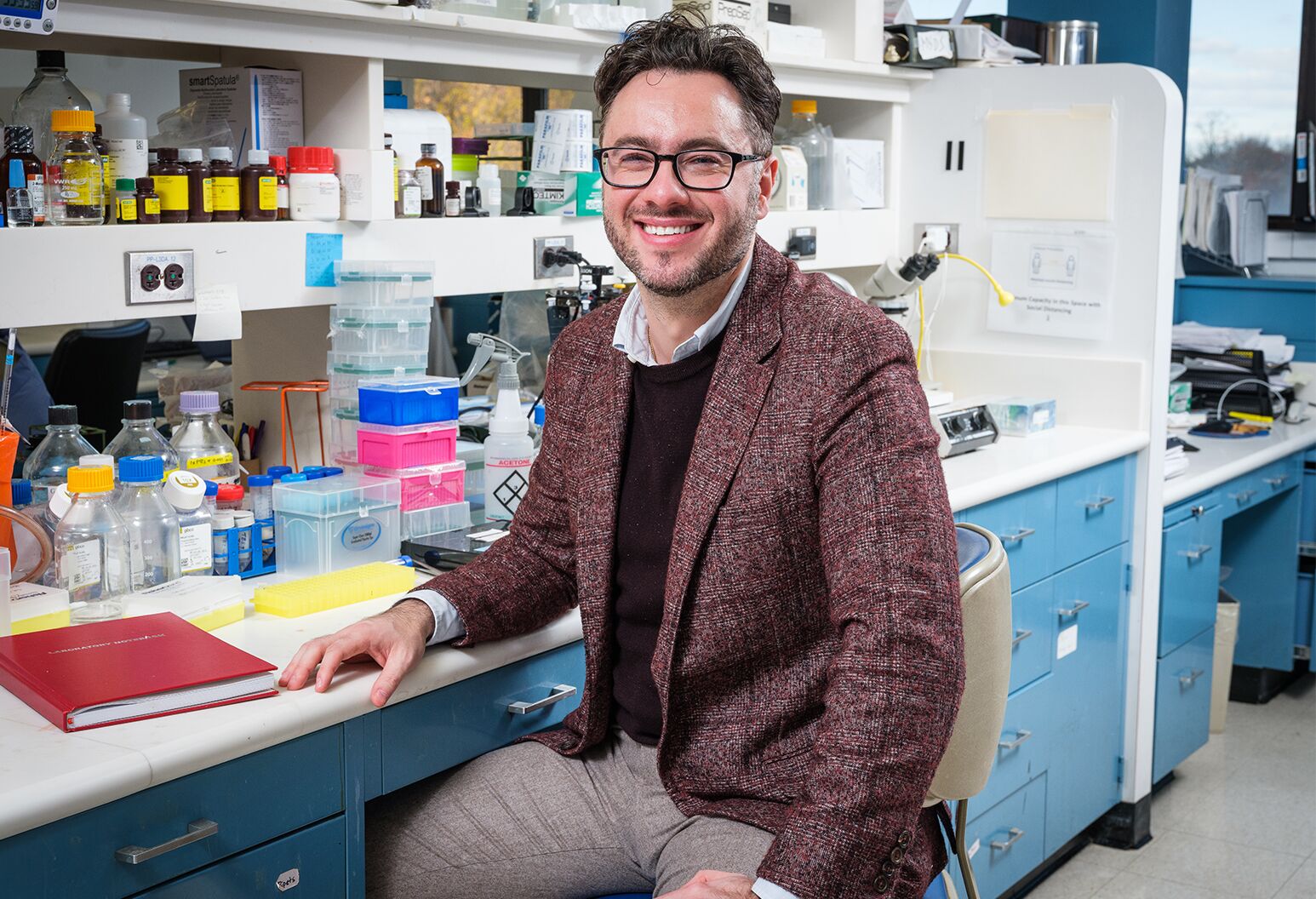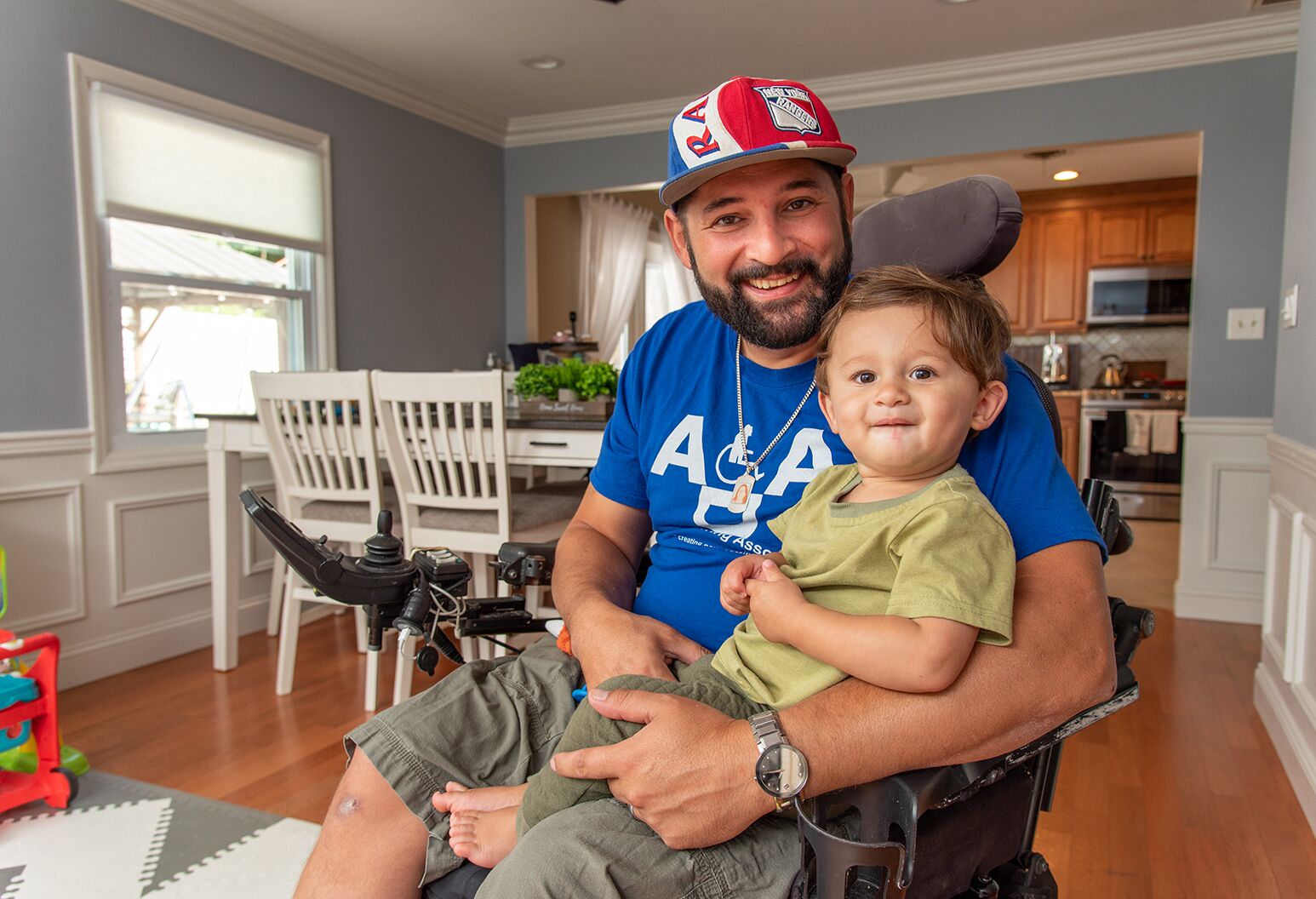The Feinstein Institutes—the research institutes of Northwell Health, New York’s largest health care provider—is home to 50 research labs, 3,000 clinical research studies and 5,000 people raising the standard of medical innovation. We make breakthroughs in molecular medicine, genetics, cancer, brain research, mental health, autoimmunity and bioelectronic medicine.
The latest
Vagus nerve stimulation shows promise for post-op heart issue

Feinstein Institutes researchers find that bioelectronic medicine can help manage postoperative heart arrhythmia
Patients who undergo cardiac surgery are at higher risk for developing postoperative atrial fibrillation (POAF) and current POAF drug therapies used to prevent it are not fully effective. A new report from The Feinstein Institutes for Medical Research provides clinical evidence that a new class of bioelectronic medicine that targets the autonomic nervous system, called autonomic neuromodulation therapies (ANMTs), may offer additional protection.
Feinstein Institutes researchers conducted a systematic review of 922 published clinical studies, including seven randomized controlled trials, that used ANMTs for the prevention of POAF and published their conclusions today in the Journal of the American College of Cardiology. POAF is irregular and often rapid heart rhythm that can lead to a longer hospital stay, formation of blood clots, stroke and increased risk of death. Their findings show that ANMTs significantly reduced the frequency and severity of POAF, length of hospital stay, and levels of interleukin-6, a cytokine protein that promotes inflammation when present in high levels. Notably, out of all ANMTs, vagus nerve stimulation (VNS) and epicardial injections showed the most promise in lowering POAF incidence.
“Bioelectronic medicine therapies can reduce inflammation, potentially treating chronic conditions like Crohn’s disease and rheumatoid arthritis, among others,” said Stavros Zanos, MD, PhD, assistant professor in the Institute of Bioelectronic Medicine at the Feinstein Institutes and senior author on the JACC paper.
Vagus nerve stimulation can help heart surgery patients recover
“This study shows VNS and other autonomic neuromodulation techniques may help patients recover more quickly and avoid potential complications after heart surgery.”
This is the first systematic review and meta-analysis addressing the overall efficacy of autonomic neuromodulation for POAF prevention. Dr. Zanos, along with Stefanos Zafeiropoulos, MD, an Elmezzi Graduate School of Molecular Medicine scholar and lead author of the study, and collaborators looked at several therapies, including VNS, ganglionated plexuses ablation, epicardial injections, stellate ganglion block, baroreceptor stimulation, spinal cord stimulation and renal nerve denervation, among others. The results of this research support the need for larger randomized controlled trials to confirm that ANMTs are a clinically feasible therapeutic option in this patient population.
A global leader in bioelectronic medicine
The Feinstein Institutes is the global scientific home of bioelectronic medicine. Researchers in the emerging field aim to diagnose and treat disease and injury using device technology to modulate the electrical activity within the body's nervous system. The vagus is a major nerve that runs throughout the body and controls crucial functions like heart function and blood pressure, digestion, breathing, and immune response.
“Dr. Zanos’ research shows promising ways bioelectronic medicine could treat serious conditions like heart arrhythmias,” said Kevin J. Tracey, MD, president and CEO of the Feinstein Institutes. “With further investigation and clinical trials, new therapies may one day be available to aid patients recovering from cardiac surgery.”
Recently, Dr. Zanos and his team published results in the Journal of Neural Engineering, which looked at the minimal dose of vagal stimulation needed to deliver safe and effective therapies. In April 2021, the team unveiled the first long-term chronic mouse vagal nerve implant for bioelectronic research.


